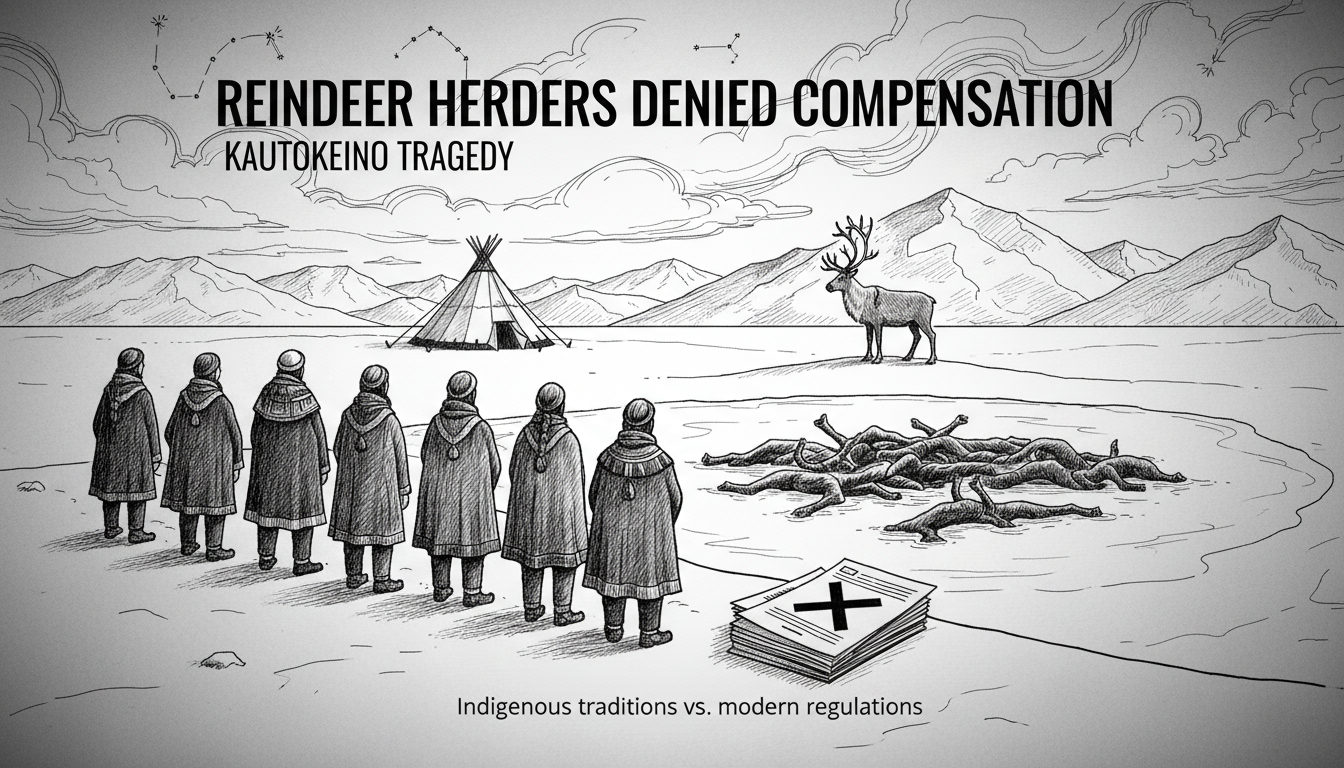Eight Sami reindeer herding families face financial ruin after being denied compensation for drowned reindeer. The animals perished in a mass drowning incident in Kautokeino last autumn. The tragedy claimed 259 reindeer from the Áboráššá grazing district.
The Reindeer Husbandry Development Fund rejected most compensation claims. Only four of twelve affected siida shares received payments. Two herders have appealed the decision.
Inge Ryan chairs the development fund. He explained the rejections stem from overgrazing violations. The Áboráššá district currently maintains 2,000 more reindeer than permitted. The district last complied with herd size limits in 2016 and 2017.
Ryan stated the rules apply equally to all herders. He expressed sympathy for the tragedy but emphasized regulatory compliance. The fund relies on self-reported herd numbers from owners. Ryan confirmed no exceptions can be made for over-limit herds.
One affected herder lost a single reindeer. Another lost 29 animals in the incident. Both have challenged the compensation denials.
Andreas Brønner represents one appealing herder. He argues the drowning constituted an unforeseeable accident. Herders couldn't have prevented the tragedy at Stuorajávri lake. Brønner contends herd size shouldn't determine compensation eligibility for such extraordinary events.
The lawyer maintains regulations exist to cover accident losses. He considers denying support unreasonable when external factors cause damage. The appeals now advance to the Agriculture and Food Ministry for final determination.
This case highlights ongoing tensions between traditional Sami livelihoods and modern regulatory frameworks. Reindeer herding represents both cultural heritage and economic survival for Arctic indigenous communities. Climate change increasingly threatens these practices with unpredictable ice conditions and extreme weather.
Similar mass drownings occurred previously in Nordic reindeer herds. Last autumn witnessed another incident where 190 reindeer drowned in Norway. Herders then cited inadequate emergency equipment for rescue operations.
The compensation battle exposes how bureaucratic rules sometimes clash with indigenous reality. Herders face natural disasters while navigating complex administrative systems. The outcome could set precedents for future climate-related livestock losses across the Arctic region.
International observers monitor how Nordic countries balance environmental protection with indigenous rights. Norway recognizes Sami constitutional protections but practical implementation often creates friction. This case demonstrates how well-intentioned regulations can produce harsh consequences when applied rigidly.
The ministry's final decision will determine whether herders receive support for their devastating losses. Meanwhile, families grapple with both emotional trauma and financial uncertainty following the tragic event.
